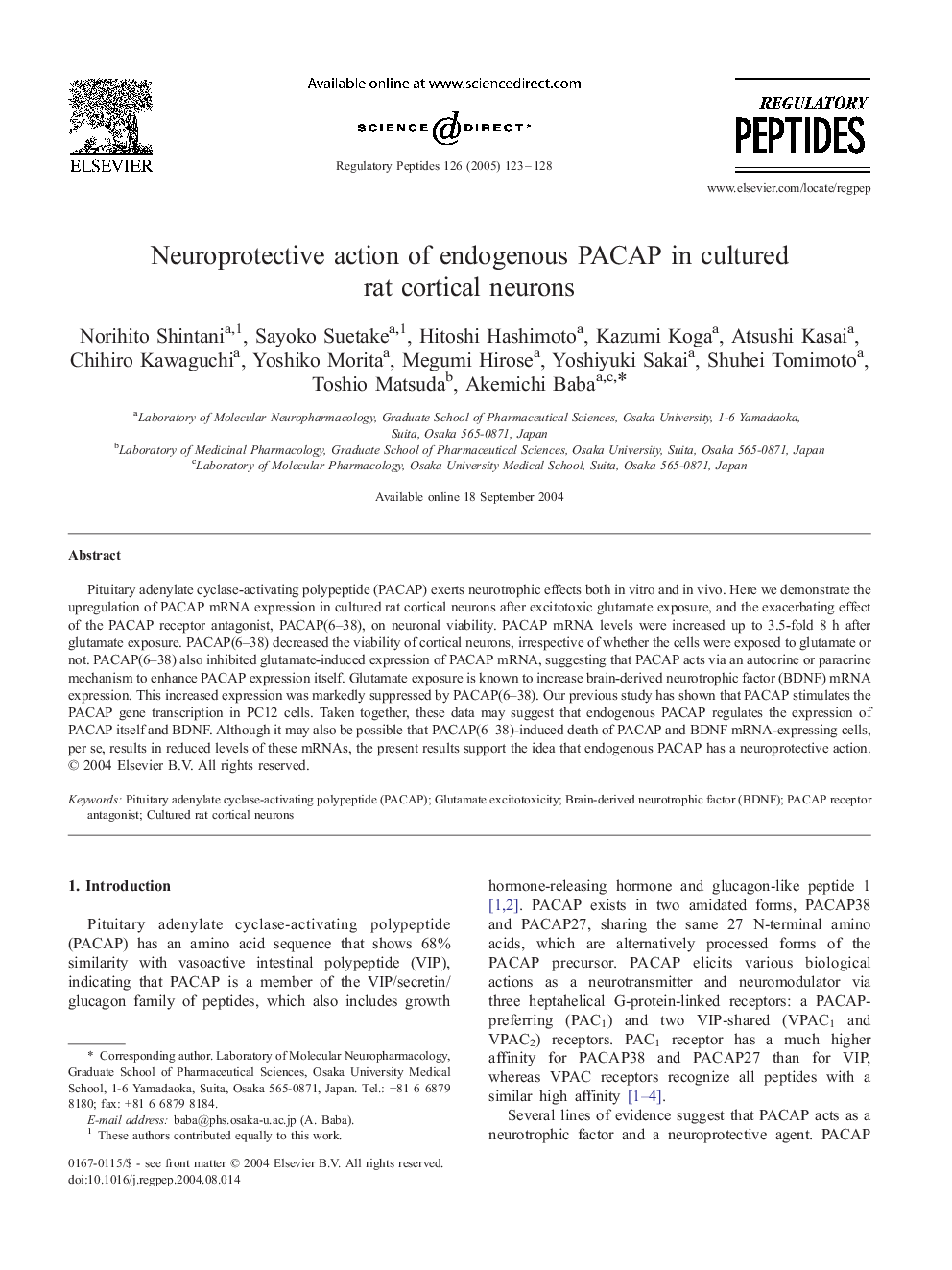| Article ID | Journal | Published Year | Pages | File Type |
|---|---|---|---|---|
| 9894489 | Regulatory Peptides | 2005 | 6 Pages |
Abstract
Pituitary adenylate cyclase-activating polypeptide (PACAP) exerts neurotrophic effects both in vitro and in vivo. Here we demonstrate the upregulation of PACAP mRNA expression in cultured rat cortical neurons after excitotoxic glutamate exposure, and the exacerbating effect of the PACAP receptor antagonist, PACAP(6-38), on neuronal viability. PACAP mRNA levels were increased up to 3.5-fold 8 h after glutamate exposure. PACAP(6-38) decreased the viability of cortical neurons, irrespective of whether the cells were exposed to glutamate or not. PACAP(6-38) also inhibited glutamate-induced expression of PACAP mRNA, suggesting that PACAP acts via an autocrine or paracrine mechanism to enhance PACAP expression itself. Glutamate exposure is known to increase brain-derived neurotrophic factor (BDNF) mRNA expression. This increased expression was markedly suppressed by PACAP(6-38). Our previous study has shown that PACAP stimulates the PACAP gene transcription in PC12 cells. Taken together, these data may suggest that endogenous PACAP regulates the expression of PACAP itself and BDNF. Although it may also be possible that PACAP(6-38)-induced death of PACAP and BDNF mRNA-expressing cells, per se, results in reduced levels of these mRNAs, the present results support the idea that endogenous PACAP has a neuroprotective action.
Keywords
Related Topics
Life Sciences
Biochemistry, Genetics and Molecular Biology
Biochemistry
Authors
Norihito Shintani, Sayoko Suetake, Hitoshi Hashimoto, Kazumi Koga, Atsushi Kasai, Chihiro Kawaguchi, Yoshiko Morita, Megumi Hirose, Yoshiyuki Sakai, Shuhei Tomimoto, Toshio Matsuda, Akemichi Baba,
